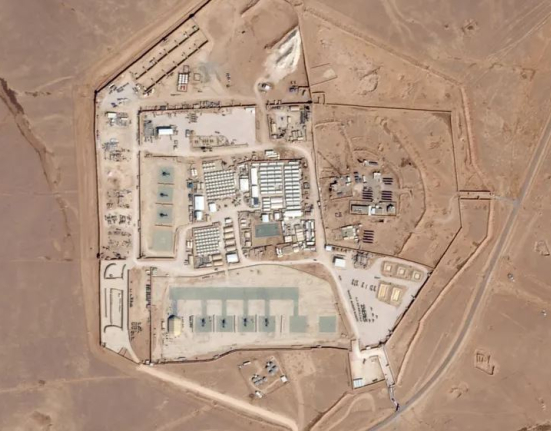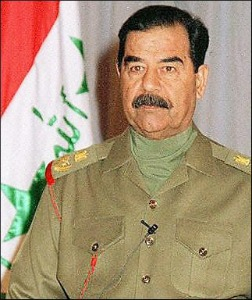Salah Nasrawi
As the political crisis rages on and it is unclear what stakeholders will do next, Iraqis should work out what to do in order to prevent their country falling apart.
As a last-ditch bid to find a way out of the ongoing deadlock over forming a new government in Iraq comes to an end, high-stakes questions are looming large about how the conflict in the country might evolve on the ground if the stand-off turns violent and triggers the much-feared breakup of the war-battered country.
The attempt by outgoing Prime Minister Mustafa Al-Kadhimi to bring rival political factions to the negotiating table last week to afind an end to the crisis has stalled against a backdrop of sharp divisions and disagreements between leaders who are vying for power.
With Al-Kadhimi’s call for national dialogue to steer Iraq through its nearly 11-month crisis having provided no silver lining and all power-holders having continued to dig in, Iraqis now need to recalibrate their vision of their fragile political system in order to save their country from implosion.
Iraq has experienced several attempts at national dialogue since the fall of the regime of former dictator Saddam Hussein in 2003, seeing them as a tool for a political transition and to resolve political crises and pave the way for drastic changes.
None of these past national dialogues have resulted in any tangible solutions, however, and neither have the agreements they have given rise to been implemented. Instead, they have been used as platforms by the political elites to gain or reclaim political legitimacy, limiting their potential for transformative change.
Spared from the waves of turmoil that have hit Iraq over the last two decades, Iraq’s rival factions, already armed to the teeth and bolstered with relentless militias, will likely risk a bloody civil war if the deadlock continues. The only remaining way out is to undertake talks in order to avoid further deterioration.
If there is any piece of advice one can give to end the impasse, a new formula for national reconciliation is needed that would avoid all the past mistakes and shortcomings and prevent failure which would lead to a continued conflict with threatening consequences.
The proposal is based on the premise that the current crisis is unmanageable but provides a good opportunity to find a resolution. It also assumes that the post-Saddam political system in Iraq has become a liability and that the country needs a new transitional political system that will eventually establish sustainable peace.
Instead of cosmetic changes or half-cocked reforms that will not last, a revolutionary approach is needed to introduce a major overhaul of Iraq’s failed political system that will lead to the launch of a new, efficient, and lasting one.
The three branches of power in Iraq, legislative, executive, and judicial, are effectively dysfunctional and need to be readjusted or replaced with new ones that will no longer be the causes of division and instability.
The Iraqi parliament has been in limbo since last October’s elections, and it was taken over in July by supporters of Shia cleric Muqtada Al-Sadr who forced a shutdown. Almost completely dominated by the country’s ruling elites, the assembly has long served as little more than a rubber stamp for decisions taken by unelected oligarchs.
Meanwhile, the executive branch of government has been fraught with cronyism, nepotism, inefficiency, and rampant corruption. The governing system is fundamentally broken as all official departments are controlled by political factions that have turned them into fiefdoms.
Iraq’s judiciary does not receive due recognition and respect from the population, and it has failed to provide a stable environment for peace and order or to guarantee the necessary balance between the two other powers.
Its decision Tuesday to suspend its work in protest against criticism to its resolutions will deepen the crisis and leave the constitutional system in disarray.
Hence, any potential new deal should work to ensure the dissolution of the three branches of government as they now stand while maintaining the rest of the state institutions, such as the security forces, the bureaucracy, the local courts, the public-service sectors, and the country’s oil industry that generates the revenues needed for reconstruction.
Iraq’s post-Saddam constitution, which those who drafted it thought would be a permanent document, has become redundant and should be amended or rewritten in order to build the basis for profound political and institutional changes.
A new constitution should be drafted for a new era, avoiding the previous mistakes that made the current document hollowed out with vagueness and ambiguities.
This model of a drastic but gradual evolution of the Iraqi political system envisages three stages for transforming Iraq into a stable nation with what is widely called a civic state that promotes a citizen-based rather than an identity-based political system.
During the first phase, a transitional authority agreed on by consensus should be installed to take power for at least two years in order to perform crisis management, security governance, and control the state apparatus. This government should facilitate a national dialogue in which different groups meet to design a new social contract.
The stakeholders should agree on a framework for rebuilding the Iraqi state based on a new set of principles. One major task will be to review the federal system in the country that has failed to help build a modern government that can pursue equitable power-sharing and effective economic development to meet the broader needs of the Iraqi people.
After nearly 20 years of federalism in Iraq, this system has failed, and instead of bolstering “unity in diversity” it has created divisions and fed separatism. In order to protect the country’s sovereignty, Iraq now needs a strong central government that will maintain the sharing of power and wealth with local authorities.
The new system should also review the role non-state actors play in both domestic and foreign settings. While civil society should be encouraged and supported, Iraq’s new political system should disband all armed groups, especially those which have links with foreign countries.
Given that Iraq has developed an oligarchy that has controlled the state heavy-handedly, the new process should try to make true parliamentary democracy possible by enshrining grassroots participation in the new constitution, undermining the rule of the oligarchs and helping new leaders to emerge.
A robust political parties law should be enacted in order to allow as many people as possible to organise themselves to promote their interests and empower them to help shape national politics. The law would allow the political parties to present themselves as an alternative to the rule of the few and to offer different avenues for public participation.
Such legislation would help to break the cycle of sectarian conflict that is feeding prejudice and hatred and triggering conflicts over national resources and power within the government. It would amend the political status quo that allows one group more advantages.
The second stage should be dedicated to conflict resolution by putting into practice agreed principles to stabilise the country and build capacity to overcome communal divisions and build peace at local levels.
In the final phase, having dealt with troubles originating in the political system, Iraq’s governance should be rebooted to start the much-delayed post-invasion state and nation-rebuilding efforts that should have taken place in 2003.
Iraq’s problems originated in the US decision not to engage in nation-building after its invasion of the country in 2003, leading first to the breakdown of order and then to a chronic political impasse.
Successful nation-building should be demonstrated by forging strong ties between the state and the citizenry that are built on trust and reach across Iraq’s ethnic and sectarian divides, integrating its multiple communities into new and inclusive power arrangements.
While the conflicts in the country may recede during this process, political battles will likely remain intense. The purpose of the process should not be simply to “freeze” the conflicts, leaving a devastated Iraq to slide into further uncertainty and dysfunction.
At some stage, Iraq may need foreign help to advance the reconciliation and rebuilding process, but outside powers, many of them having used Iraq as a proxy for their own competition, should avoid past mistakes in trying to influence the conflicts in the country or shaping its transition to serve their vested interests.
As much as it is important, an external role in pushing the transition in Iraq may be harder to obtain for fear outside powers will maintain self-serving agendas and will seek to sideline Iraqis’ interests.
But in the absence of an external affirmative role to help Iraqis resolve their disputes, the conflict could degenerate into further chaos and Iraq would be turned into a theatre for regional and major powers’ competition.
Source: ahram

















